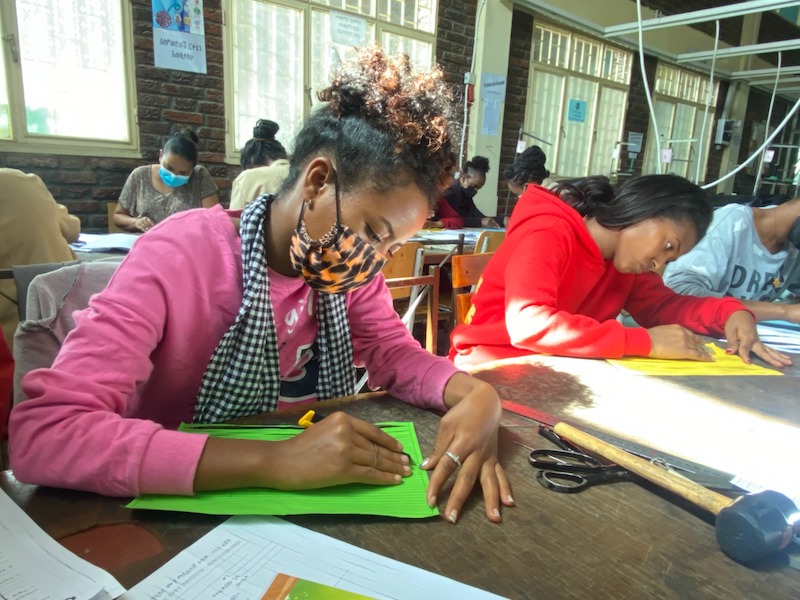In Ethiopia, where 70% of the population is young and the unemployment affects 5.72% of them[1], the Italian Agency for Development Cooperation reinforces the creation of decent employment opportunities for young women and men through the development of technical, managerial and institutional capacities in the textile, garment and leather industries.
One of its projects focuses on vulnerable migratory contexts and the improvement of the working conditions as well as the promotion of entrepreneurship in the mentioned sectors.
The activities are brought forward by three main actors, the United Nations Industrial Development Organization (UNIDO) and the Italian civil society organizations: CVM – Comunità Volontari per il Mondo and VIS – Volontariato internazionale per lo sviluppo, in partnership with the Italian NGO ISCOS.
Since April 2022, VIS interventions are based in Addis Ababa and are focusing on the leather sector. Several technical-professional and soft skills training are carried out together with the Bosco Children TVET Institute. The heart of the Salesians activities in Ethiopia, in fact, is the Vocational Training Center, which, with its different courses of study initiates the recovered youth toward a future of professional skills, decent work, human and social affirmation.
Nowadays 17 women and 3 men, that comes from a vulnerable context, are participating to the first round of professional trainings on leather, that will last 3 months and will end with one month of practice in an Ethiopian enterprise specialized on leather craft.
Lastly, youths that have already created an enterprise can participate to life skill training for ameliorating their business skill and students that have been already trained at Don Bosco Children center can be supported for creating their own enterprise.
This experience demonstrate that for facilitating the job placement of young people in Addis Ababa, it is essential to strengthen the vocational training system through the synergy between TVET, public employment services, and the private sector, in order to create an approach between the various actors that influence positively the labor market.
[1] ILO, 2021

